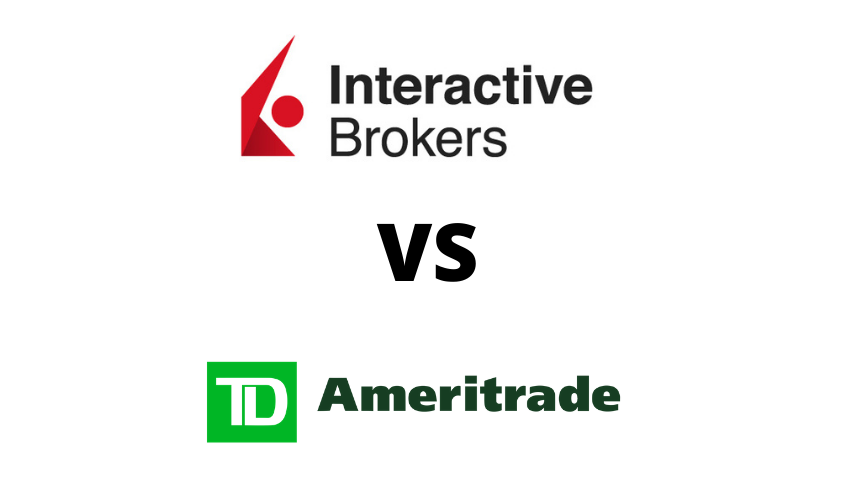TD Ameritrade vs Interactive Brokers: A Comprehensive Comparison
TD Ameritrade Background
Founded in 1971, TD Ameritrade has established itself as a leading online brokerage platform. It offers a user-friendly interface and offers a variety of financial services, including stocks, options and mutual fund trading. Over the years, TD Ameritrade has built a loyal user base thanks to its robust features and dedication to customer satisfaction.
Interactive Brokers Background
In contrast, Interactive Brokers, founded in 1978, has carved its own niche by offering advanced trading tools and global access to a wide range of financial instruments. Known for catering to more experienced and active traders, Interactive Brokers positions itself as a platform for those looking for a comprehensive and dynamic trading experience.
User interface and experience
One of the first considerations for traders is the user interface and overall experience that each platform offers. TD Ameritrade offers an intuitive interface, making it easy for beginners to navigate. On the other hand, Interactive Brokers offers a more advanced interface, designed to meet the needs of experienced investors. The choice between simplicity and advanced features largely depends on individual preferences.
Trading Fees and Commissions
Understanding the trading cost implications on each platform is extremely important. TD Ameritrade typically charges a commission per trade, while Interactive Brokers follows a tiered pricing structure. Traders should carefully evaluate their trading frequency and volume to determine which fee structure better suits their financial goals.
Investment options
Both platforms offer a variety of investment options, including stocks, options, mutual funds, and more. However, TD Ameritrade stands out for its comprehensive range of commission-free ETFs, which offer investors many opportunities for diversification. Interactive Brokers, on the other hand, is known for its global access and wide variety of tradable assets.
Research Tools and Educational Resources
TD Ameritrade prides itself on its advanced research tools, which provide users with in-depth analysis and market data. Interactive Brokers, meanwhile, focuses on education and offers a range of resources to empower traders with knowledge. Investors should consider the importance of research and education based on individual preferences and trading styles.
Customer service
The quality of customer service can make a significant difference in the overall trading experience. TD Ameritrade is known for its responsive customer service, serving the needs of both novice and experienced traders. Interactive Brokers, with an emphasis on professional traders, offers efficient support, although it may not be specifically designed for beginners.
Mobile App Comparison
In the era of mobile commerce, the effectiveness of the mobile applications provided by each platform is crucial. The TD Ameritrade app is user-friendly and easy to access, making it a great choice for traders who travel frequently. The Interactive Brokers mobile app, while powerful, can have a steeper learning curve due to its advanced features.
Compliance with regulations
Ensuring that trading platforms meet regulatory standards is essential for investor protection. TD Ameritrade and Interactive Brokers comply with regulatory frameworks, providing a level of security and confidence to users. Dealers should verify the specific regulations that apply in their region to make an informed decision.
Security measures
Protecting sensitive financial information is a top priority for investors. TD Ameritrade implements advanced security measures to protect user data. Known for its commitment to security, Interactive Brokers uses encryption and authentication protocols to ensure a secure trading environment.
Pros and Cons of TD Ameritrade
Excess
- User friendly interface
- Comprehensive research tool
- Wide range of commission-free ETF products
Counter
- Trading commissions on certain assets
- May not serve advanced traders well
Interactive Brokers Pros and Cons
Excess
- Advanced trading tools
- Global access to diverse assets
- Appropriate pricing structure
Counter
- Steeper learning curve for beginners
- Inactivity fees for infrequent traders
Making an Informed Decision
Ultimately, the choice between TD Ameritrade and Interactive Brokers hinges on individual preferences, trading experience, and financial goals. Novice investors may find TD Ameritrade's simplicity and educational resources appealing, while experienced traders seeking advanced tools may gravitate towards Interactive Brokers. Evaluating factors like trading fees, investment options, and customer support will aid in making an informed decision.
Conclusion
In the dynamic world of online trading, choosing the right platform is a pivotal decision. TD Ameritrade and Interactive Brokers, each with its unique strengths, cater to different segments of the trading community. By carefully considering factors such as user interface, fees, investment options, and support, investors can align their choice with their specific needs and preferences.
FAQs:
Is TD Ameritrade suitable for beginners?
Yes, TD Ameritrade's user-friendly interface and educational resources make it suitable for beginners.
Does Interactive Brokers charge inactivity fees?
Yes, Interactive Brokers imposes inactivity fees on accounts with low trading activity.
Which platform offers a more extensive range of tradable assets?
Interactive Brokers is known for providing global access to a diverse range of tradable assets.
Can I trade on TD Ameritrade's mobile app?
Yes, TD Ameritrade's mobile app is designed for convenient on-the-go trading.
Do both platforms comply with regulatory standards?
Yes, both TD Ameritrade and Interactive Brokers adhere to regulatory frameworks to ensure user security and trust.

